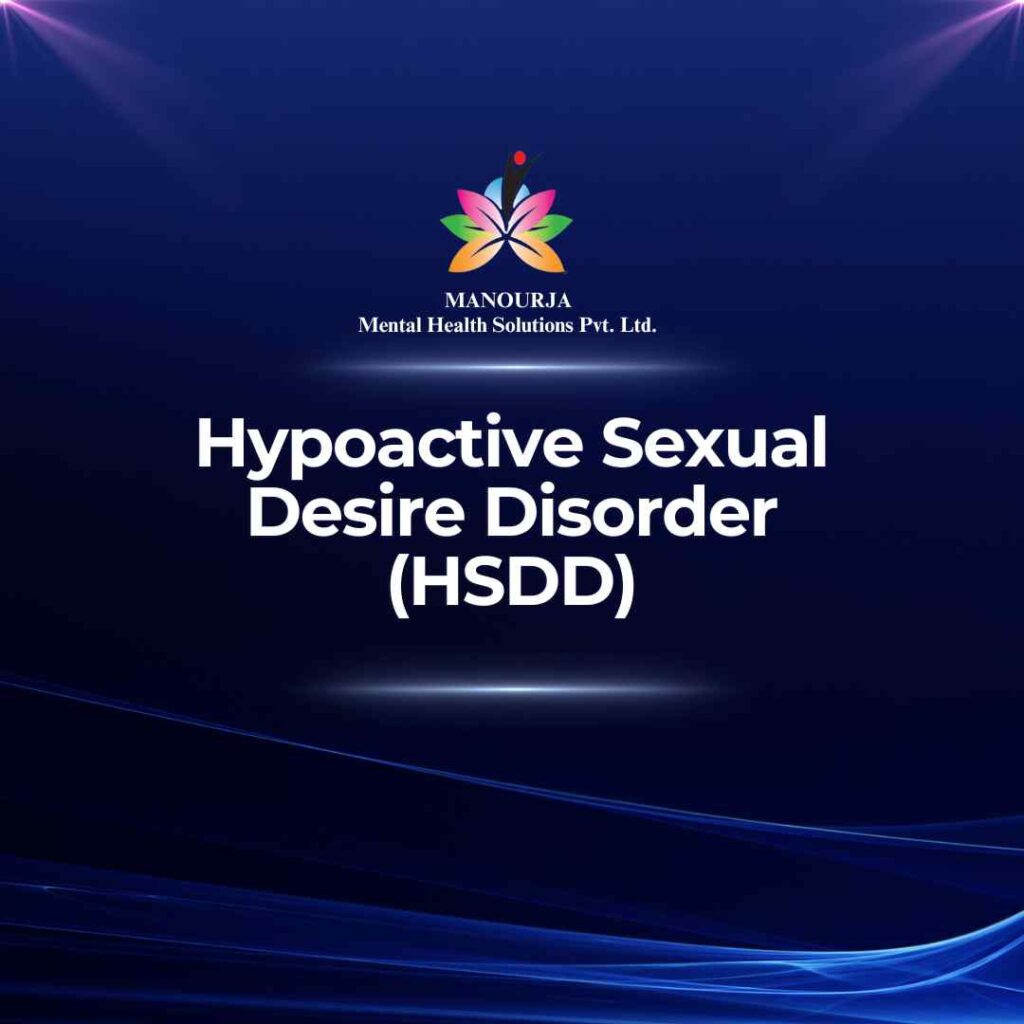Hypoactive Sexual Desire Disorder (HSDD)

Hypoactive Sexual Desire Disorder (HSDD) is a sexual dysfunction characterized by a persistent or recurrent lack of sexual interest or desire. This condition can manifest in anyone, regardless of gender, and impacts not only sexual activity but also personal satisfaction and interpersonal relationships.
What is HSDD?
HSDD is defined by an absence of sexual fantasies and desires that is noticeable and distressing. This isn’t about going through a temporary dip in sexual interest due to stress or a busy schedule; it’s a lasting state that causes significant personal distress or problems within a relationship.
Symptoms of HSDD
- Lack of Interest in Sex: Individuals with HSDD rarely have sexual thoughts or desires. This isn’t just disinterest in sexual activity but also a lack of engagement with sexual thoughts or fantasies.
- Distress or Relationship Problems: What separates HSDD from low libido is the distress or interpersonal difficulties it causes. Someone with HSDD might feel upset or frustrated about their lack of desire, or it might cause tension with their partner.
- Consistency and Persistence: The symptoms are not fleeting; they persist over time and are consistent in their presence, making them more than just an occasional issue.
Forms of HSDD
- Primary vs. Secondary: Primary HSDD means the individual has always experienced low sexual desire. Secondary HSDD refers to a loss of sexual desire that develops after a period of normal desire.
- Situational vs. Generalized: Situational HSDD occurs only in specific situations or with specific partners. In contrast, generalized HSDD is present regardless of the situation or partner.
Treatment Options for HSDD
Managing HSDD usually requires a combination of strategies tailored to the individual’s specific needs.
Psychological Counseling
- Individual Therapy: This can help address any underlying psychological issues such as depression, anxiety, or past trauma that might be contributing to HSDD.
- Couples Counseling: If the HSDD is affecting a relationship, couples counseling can be beneficial. This form of therapy helps both partners discuss their feelings, expectations, and disappointments in a safe environment, possibly restoring intimacy and understanding.
Medical Treatments
- Hormonal Treatments: For some, hormonal imbalances might contribute to HSDD. In such cases, hormone therapy, such as estrogen or testosterone supplements, might be recommended.
- Medications: Flibanserin (Addyi) is approved for the treatment of premenopausal women with HSDD, and it works by affecting serotonin and other neurotransmitters in the brain. Bupropion, an antidepressant, has also been used off-label to treat HSDD due to its side effect of increasing libido.
Lifestyle Adjustments
- Stress Reduction: Engaging in stress-reducing activities such as yoga, meditation, or regular exercise can help alleviate some of the pressures that might be contributing to HSDD.
- Education and Open Communication: Understanding one’s own body and sexual health can demystify many concerns around sex. Openly discussing these with a partner can also alleviate tension and build intimacy.
Addressing Contributing Factors
- Reviewing Medications: Sometimes, other medications can contribute to HSDD. Reviewing these with a healthcare provider can help identify and adjust any that might be affecting sexual desire.
HSDD is a complex disorder influenced by multiple factors, including physical health, psychological well-being, and relationship dynamics. Effective treatment plans are highly personalized, often incorporating multiple types of therapy and interventions to address the specific needs of the individual or couple. If you suspect you or your partner might be experiencing HSDD, a conversation with a healthcare provider is a crucial first step toward finding help and improving your quality of life.
At MANOURJA, we believe in the transformative power of counseling. Our experienced therapists offer a safe and supportive space where you can explore your thoughts, emotions, and challenges. Through personalized counselling sessions, we’ll work together to develop coping strategies, build resilience, and achieve lasting positive change. Discover the path to a healthier, happier you with MANOURJA counselling services.
MANOURJA Rehabilitation Services
At MANOURJA, we’re dedicated to helping you in rebuild your life, after difficult times. Our rehabilitation services focus on understanding what you need to move forward, whether you’re recovering from addiction, trauma, or any psychological – social challenges. We create personalized plans, that are all about helping you, regain your strength and find hope again. With a caring team by your side, you’ll have the support to make real progress and take steps toward a brighter, healthier future.
